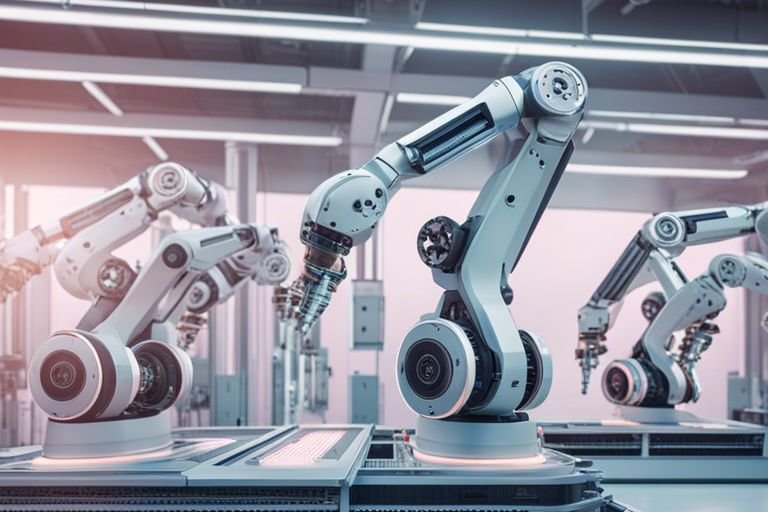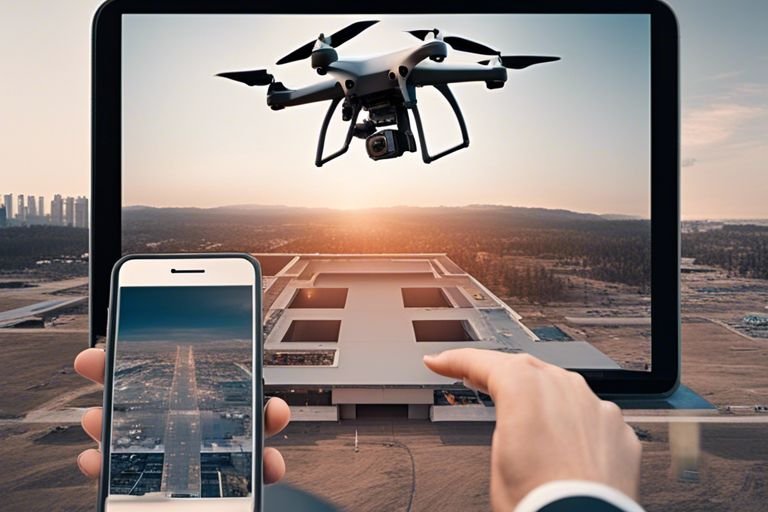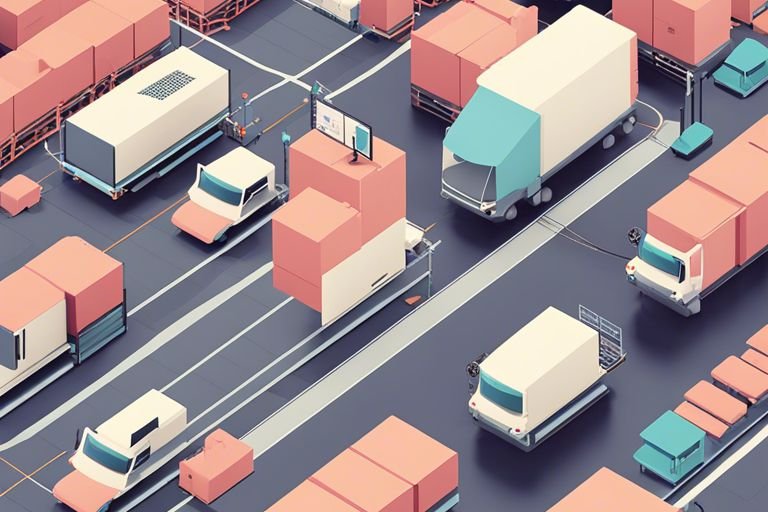How is AI being used to improve the efficiency and sustainability of agriculture?
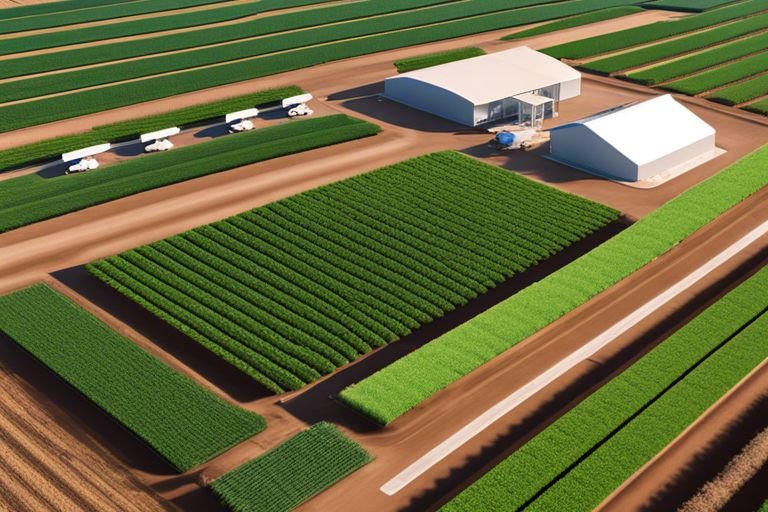
Utilizing artificial intelligence (AI) in agriculture is revolutionizing the industry, providing unprecedented efficiency and improved sustainability. Through advanced data analytics, AI is enabling farmers to make more informed decisions about crop production, irrigation, and resource management. By leveraging machine learning algorithms, AI can analyze vast amounts of data to predict crop yields, optimize planting schedules, and identify potential disease outbreaks. This cutting-edge technology not only streamlines operational processes but also minimizes resource wastage and environmental impact. Whether it’s through autonomous vehicles for precision farming or smart sensors for real-time monitoring, AI has the potential to revolutionize the way agriculture is practiced, ensuring a more sustainable and productive future for the industry.
Key Takeaways:
- Precision Farming: AI technology is being used to analyze data from sensors and drones to provide real-time information on soil condition, moisture levels, and crop health, allowing farmers to make more precise decisions about irrigation, fertilization, and pest control.
- Optimized Supply Chain: AI is helping to optimize the entire agricultural supply chain, from planting and harvesting to transportation and storage, by forecasting demand, improving logistics, and reducing waste, ultimately leading to more efficient and sustainable distribution of agricultural products.
- Optimal Resource Management: With the help of AI, farmers can optimize their use of resources such as water, energy, and labor, leading to reduced environmental impact and higher overall efficiency in agricultural production.
AI-Driven Crop Management
Obviously, one of the most significant ways that AI is being used to improve the efficiency and sustainability of agriculture is through AI-driven crop management. By utilizing AI technology, farmers are able to make more informed decisions about their crops, leading to higher yields and more sustainable practices.
Precision Agriculture
With the help of AI, precision agriculture has become a game-changer in the farming industry. Through the use of drones and sensors, AI can analyze and track crop health and growth patterns across large areas of land. This allows you to identify areas of your fields that may need more attention and resources, ultimately leading to optimized crop yields. By pinpointing the exact areas that require intervention, you can minimize the use of pesticides, fertilizers, and water, leading to significant cost savings and a more sustainable farming operation.
Pest and Disease Prediction
AI technology has also been incredibly valuable in predicting and preventing pest and disease outbreaks in crops. By analyzing numerous data points such as weather patterns, soil conditions, and crop health, AI can help you anticipate potential threats to your crops. By receiving early warnings about potential pest or disease outbreaks, you can take proactive measures to protect your crops, minimizing the need for chemical intervention and reducing the risk of crop loss.
Incorporating AI-driven crop management into your farming practices can lead to more efficient use of resources, increased crop yields, and a reduced environmental impact. By leveraging the power of AI technology, you can make more informed decisions that will benefit both your farm and the sustainability of the agriculture industry as a whole.
Sustainable Farming Practices
The use of AI in agriculture has led to the development of sustainable farming practices that are not only efficient but also environmentally friendly. By harnessing the power of artificial intelligence, farmers can now optimize their resource management and enhance soil health, ultimately leading to improved crop yields and reduced environmental impact.
Resource Management with AI
The integration of AI in agriculture has enabled farmers to better manage their resources, such as water, fertilizers, and pesticides. Through the use of advanced algorithms and data analysis, AI technologies can help you optimize irrigation schedules, reduce water usage, and minimize chemical inputs. By providing real-time insights into soil moisture levels, nutrient requirements, and pest pressures, AI can help you make more informed decisions, ultimately minimizing waste and maximizing efficiency in your farming operations.
Enhancing Soil Health and Crop Yield
AI technologies are also being utilized to monitor soil health and enhance crop yield. By analyzing soil data, including nutrient levels, pH, and organic matter content, AI can help you tailor your farming practices to specific soil conditions, ensuring optimal crop growth. Furthermore, AI-powered drones and sensors can provide you with accurate and timely information about crop health, allowing you to identify and address issues such as disease outbreaks or nutrient deficiencies before they impact your yield. By leveraging AI, you can improve the overall health of your soil and maximize the productivity of your crops.
By incorporating AI into your farming practices, you can optimize resource management, enhance soil health, and increase crop yields while minimizing the environmental impact of your operations. The use of AI technologies in agriculture represents a significant step towards sustainable and efficient farming, benefiting both farmers and the environment.
Livestock Monitoring and Management
Keep your livestock healthy and productive using AI-powered monitoring and management systems. With the help of advanced technology, you can now track and analyze the health and behavior of your animals in real-time, allowing you to detect any issues early and take preventive measures to ensure their well-being.
Automated Health Tracking Systems
Implementing automated health tracking systems can revolutionize the way you care for your livestock. These AI-powered systems use sensors and data analysis to monitor key indicators such as body temperature, heart rate, and activity levels. By continuously collecting and analyzing this data, you can receive early warnings of any health abnormalities or distress signals, allowing you to intervene promptly and prevent potential illnesses or injuries. This proactive approach to health monitoring can significantly reduce the risk of disease outbreaks and improve overall animal welfare on your farm.
Optimizing Feeding and Breeding
AI technology can also help you optimize feeding and breeding practices for your livestock, leading to increased efficiency and productivity. By analyzing data on individual animals’ dietary needs and growth patterns, AI systems can provide personalized feeding plans tailored to each animal’s requirements. This ensures that your animals receive the right nutrition at the right time, leading to improved growth rates and overall health. Additionally, AI algorithms can analyze genetic and performance data to identify the most suitable breeding pairs, helping you make informed decisions to enhance the genetic quality and productivity of your herd or flock.
Challenges and Future Prospects
Despite the significant strides made in applying AI to agriculture, there are several challenges that need to be addressed for its continued efficiency and sustainability. One of the main challenges is the initial cost of implementing AI technology on farms. While the long-term benefits are clear, many farmers may lack the resources to invest in such technology, hindering widespread adoption. Additionally, there are concerns regarding data privacy and security when using AI systems to collect and analyze sensitive information about crops and livestock. This brings into question the need for robust regulations and ethical guidelines to govern the use of AI in agriculture. Furthermore, the technology itself is not immune to malfunctions and errors, which could lead to devastating consequences if not properly managed.
Ethical Considerations and AI
When it comes to integrating AI into agriculture, ethical considerations are of utmost importance. As AI systems become more advanced and autonomous, questions arise about who holds liability in case of errors or accidents involving the technology. Additionally, there are concerns about the potential displacement of human workers in agriculture as AI takes over certain tasks. It is important to carefully consider the ethical implications of AI in agriculture and ensure that decisions prioritize the well-being of both the environment and the individuals involved.
Innovations on the Horizon
Looking ahead, there are several exciting innovations that could further revolutionize the use of AI in agriculture. One such innovation is the development of AI-powered robotic systems that can autonomously plant, tend, and harvest crops with incredible precision and efficiency. Furthermore, advancements in AI algorithms and machine learning techniques are enabling more accurate prediction models for weather patterns, pest outbreaks, and crop yields. These innovations have the potential to significantly boost the overall efficiency and sustainability of agriculture, paving the way for a more productive and environmentally conscious industry.
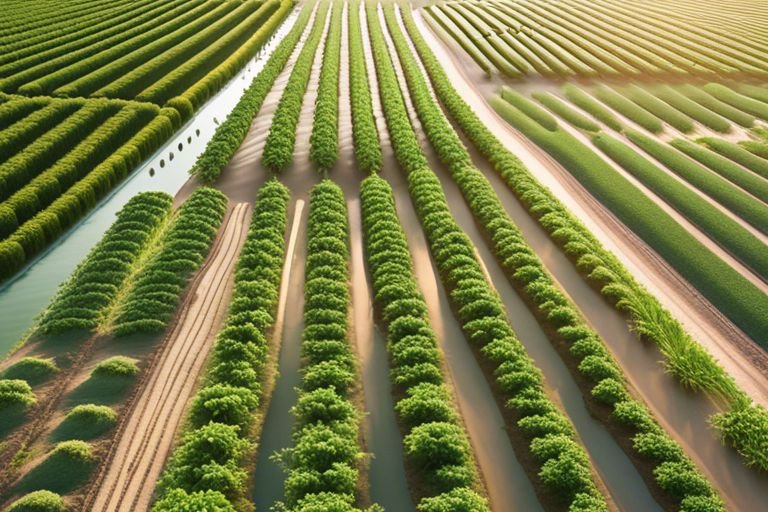
The Future of AI in Agriculture
The use of AI in agriculture is revolutionizing the way we produce food and manage resources. With the help of AI, you can now optimize crop yields, monitor plant health, and efficiently manage water and energy resources. By analyzing data from sensors, drones, and satellites, AI enables you to make informed decisions and implement precision farming techniques, ultimately reducing waste and environmental impact. As technology continues to advance, it is crucial for you to stay updated and adopt AI solutions that can improve the efficiency and sustainability of agriculture, ensuring a more resilient and productive future for the industry.
